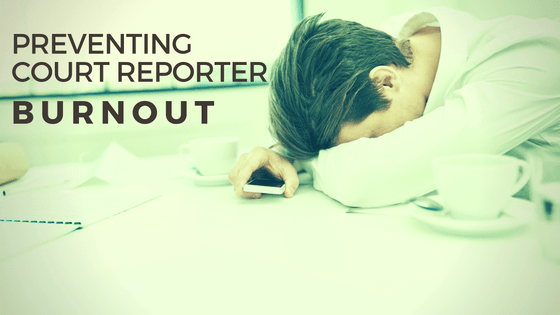In May of 2011, the National Court Reporters Association issued an abstract on Court Reporting Education in the United States. After much investigation into the state of reporting in America, the abstract concluded that “the skilled and qualified reporter will continue to be the superior method of verbatim record preservation and retrieval available now and for the foreseeable future.”
The abstract points out that “the most important accomplishment” relative to the court reporting profession in the last 100 years “on the education front was NSRA’s (now NCRA’s) creation of the Committee on Certificates of Proficiency.”
At that time, the Committee established criteria for the very first Certificate of Proficiency for machine shorthand writers, certifying reporters at 160 wpm for literary dictation, 180 wpm for jury charges, and 200 wpm for Q & A. That was then. Now, the first-rung certification, the Registered Professional Reporter (RPR) exam, requires reporters to stroke 180, 200 and 225 wpm with 98.5 percent accuracy. That change came about because, on average, people now speak more than 160 wpm. In fact, according to this CBC News Canada article, elementary school teachers speak at an average rate of 180 wpm, leaving many children struggling to “take in” what the teacher is trying to teach, as the human brain processes speech most efficiently at between 124 and 130 wpm.
Here in the States, Andrew Dlugan published, “What is the Average Speaking Rate?” and in that article he pointed out that while Al Gore’s average speaking rate ran 133 wpm, Jacqueline Novogratz averaged 188 wpm, eight words per minute beyond that which NCRA certifies its RPRs.
To address this issue, the Illinois Court Reporters Association now administers its certification exam at 200 wpm; and the California Court Reporters Associations certifies its realtime writers at 200 wpm. What this means for new and veteran reporters alike is one can never get lackadaisical about their writing. As Paul Smakula, one of Planet Depos newer reporters (3 years in the profession), put it, “Don’t think that you’re done practicing because you passed all your tests!” Rebecca Stonestreet, a 19-year veteran reporter with Planet Depos suggests “always keeping your skills honed,” and Alda Mandel, with 36 years in the profession, suggests that the most important investment a reporter can make is “Time. Time to review/revise” their writing.
Apparently, “Technology is Turning Us Into Faster Speakers,” and because technology drives the business world today, as Planet Depos reporters put it so well, by investing the time it takes to not only keep up, but be comfortable with the “new average” speaker, we can and will remain the most efficient means of creating a verbatim record.

